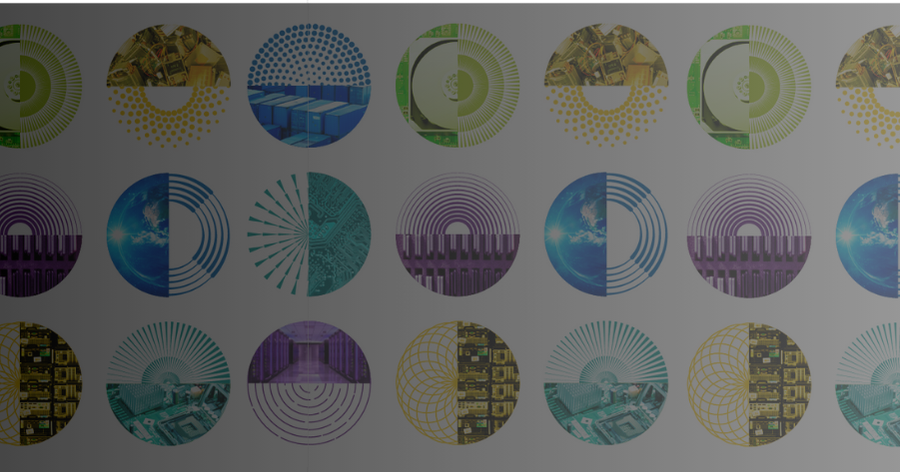In the global drive for more sustainable practices and increased circularity, France has emerged as a policy trailblazer. The country’s Anti-Waste and Circular Economy Law, known as the AGEC Law, is a game-changer for environmental stewardship, resource management, and electronic waste.
2. Key Elements Affecting IT and Technology Devices
3. A New Mandate for ITAD and Lifecycle Management
4. ITAD As a Strategic Partner in the Circular Economy
5. Repairability Index and Parts Harvesting
6. Supply of Reconditioned Equipment
7. Sustainability is Good For Business
8. France Leads the Way - What's Next?
At SK Tes, we help organizations navigate the growing complexity of electronic lifecycle management. France’s AGEC Law provides a blueprint for how businesses can align IT practices with circularity goals. In this blog we explore what this legislation means, particularly for waste electrical and electronic equipment (WEEE), and how ITAD providers play a critical role in helping businesses adapt.
Navigate safely through e-waste regulations [Guide]
Understand global e-waste rules - download your free guide.

What Is the AGEC Law?
France’s Anti-Waste for a Circular Economy Law (Loi Anti-Gaspillage pour une Économie Circulaire) was adopted in February 2020 and began rolling out provisions from 2021 onwards, with further measures introduced progressively through 2024, including Decree No. 2024-134 on February 21, 2024, which mandates minimum proportions of goods sourced by government agencies are derived from reuse and incorporating recycled materials across various product categories, including IT equipment.
The law has five core objectives:
- Eliminate waste and pollution at source
- Extend product lifespans through reuse, repair, and refurbishment
- Promote better consumer information and transparency
- Reduce plastic usage and packaging waste
- Support a circular, regenerative economy
A key ambition underpinning the AGEC Law is to decouple economic growth from resource consumption and waste generation, ensuring that prosperity is no longer tied to linear, extractive models. By incentivising reuse, repair, and more sustainable production, the legislation aims to demonstrate that environmental responsibility and economic development can go hand in hand.
This legislation is broad-reaching, but for the IT and electronics sectors, it marks a significant shift in expectations—from how products are designed and procured to how they are repaired, reused, and finally decommissioned.
Key Elements Impacting IT and Technology Devices
Several AGEC Law provisions specifically affect electrical and electronic equipment (EEE):
-
Mandatory Repairability Index:
Since 2021, manufacturers of certain electronic devices (e.g., laptops, smartphones, TVs, washing machines) must display a repairability index—a score out of 10 indicating how easy the product is to repair. This encourages consumers to choose more durable products and incentivises manufacturers to design for longevity. -
Ban on Destruction of Unsold Goods:
From 2022, France became the first country to ban the destruction of unsold non-food products, including electronics. These items must now be reused, donated, or recycled. In the European Environment Agency’s 2025 Waste Management Country Profile it was reported that France reused 16228 tonnes of electrical and electronics devices in 2021, the first year of reporting, and the baseline for measurement of the effectiveness of the legislation. -
Extended Producer Responsibility (EPR) Strengthened:
Producers are now more accountable for the entire lifecycle of products, including collection, reuse, repair, and recycling. This is pushing supply chains to integrate circularity from the start. -
Transparency and Traceability Requirements:
Companies must provide information about the origin, composition, and environmental impact of their products, including recyclability and reparability metrics.
-
Requirement to Purchase Reconditioned IT Equipment:
The latest decree stipulates that 20% of all IT equipment purchased annually by government agencies must be reconditioned, while another 20% must incorporate recycled materials, marking a substantial shift towards environmentally conscious procurement practices.
A New Mandate for ITAD and Lifecycle Management
These changes signal a fundamental shift in how IT equipment is managed. To avoid challenges at end-of-use, businesses should consider end-of-life planning at the point of procurement. That means asking questions like:
- Is this device repairable?
- What is its estimated lifespan?
- What is our plan at the end-of-life?
- Do we have an effective data destruction process in place?
- Have we got a reliable, certified vendor to manage IT lifecycle services?
- Can the devices be repurposed through reuse or resale?
- Do we have a recycling process that avoids landfill and incineration?
- What is the carbon impact of my end-of-life decisions?
This is where IT Asset Disposition (ITAD) providers like SK Tes become critical enablers of sustainable operations.
ITAD as a Strategic Partner in the Circular Economy
At SK Tes, we support organizations in extending the lifespan of their technology through:
- Secure, auditable data destruction: Using methods that comply with the latest data destruction guidelines, including NIST 800-88 r1 and IEEE 2883-2022 standards, to ensure data is erased in a way that allows safe reuse of hardware.
- Device refurbishment and reuse: Extending the usable life of equipment through testing, repair, and resale through global value recovery networks.
- Supply of reconditioned IT equipment: Enhanced repair and repurposing capabilities deliver a consistent supply of high-quality reconditioned corporate IT equipment.
- Parts harvesting: Recovering components such as memory, CPUs, and batteries to support the repair economy and improve scores on the repairability index.
- Material recovery: When reuse isn’t possible, recovering valuable metals and responsibly recycling to meet zero landfill requirements.
- Carbon and sustainability reporting: With tools like our Carbon Loop Report, businesses can quantify avoided emissions, resource recovery, and the overall impact of their ITAD activities.
These services align directly with AGEC’s objectives and allow businesses to remain compliant, reduce environmental impact, and realise cost savings.
Repairability Index and Parts Harvesting
France’s repairability index is designed to combat planned obsolescence and promote maintainability, with a goal of increasing the proportion of products that get repaired from 40% to 60% within five years (by 2026). ITAD providers contribute to this ecosystem by feeding recovered parts back into the repair economy, supporting manufacturers and service providers with spare parts supply, and providing transparency on failure trends and repair feasibility.
This supports compliance with AGEC requirements and reduces demand for new materials and products, supporting both economic and environmental sustainability.
Supply of Reconditioned IT Equipment
With the introduction of Decree No. 2024-134, the French government has set ambitious goals to incorporate reconditioned and recycled materials within the IT and telecommunications sector. An IT Asset Disposition (ITAD) company can serve as a crucial partner in fulfilling these mandates, offering a robust supply chain for reconditioned IT equipment.
Expertise in refurbishing computers and corporate IT equipment positions your IT disposition and recycling service provider as a reliable source for government agencies. They can supply high-quality reconditioned products that align with the decree's sustainability objectives. By sourcing the mandated 20% of reconditioned IT equipment, agencies can significantly reduce their environmental footprint and promote a circular economy, thus adhering to the latest legislative requirements.
Sustainability Is Good for Business
Increasingly, stakeholders, from regulators to investors to customers, expect sustainability to be embedded into business operations. Working with an ITAD provider like SK Tes gives you:
- Environmental compliance and risk mitigation
- Clear, auditable reports for ESG and Scope 3 emissions reporting
- Data protection assurance through certified data destruction
- Cost savings from resale and refurbishment
- Reliable Supply: Access a consistent stream of quality-checked and assured reconditioned IT equipment.
Circularity isn’t just good for the planet—it’s smart business.
France Leads the Way – What’s Next?
France has taken a bold leadership role in combating waste and embedding circularity in its economy. It was the first country to mandate repairability scores on electronics and to ban the destruction of unsold non-food products, including IT equipment.
Globally, other countries are following suit, with a patchwork of e-waste and right-to-repair legislation emerging across the EU, US, UK, and Asia. The direction is clear: linear consumption models are on the way out, and circular models, are the future.
Stay Ahead of the Curve
As legislation evolves, businesses must proactively adapt their IT lifecycle strategies.
Download our Whitepaper: Navigating Safely Through E-waste Legislation to understand the global legislative landscape and how SK Tes can help you stay compliant, sustainable, and future-ready.
See how SK Tes can help you today





